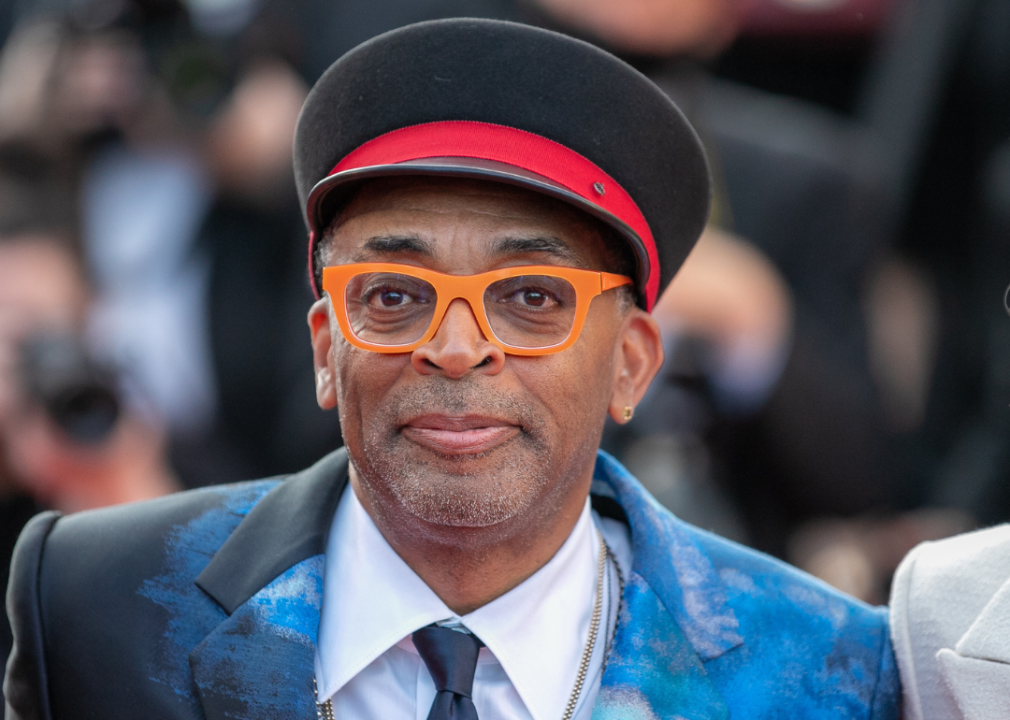25 of the most prolific film producers of the 20th century
Published 5:30 pm Thursday, May 19, 2022
Marc Piasecki/FilmMagic // Getty Images
25 of the most prolific film producers of the 20th century
The average movie-going audience might be forgiven for not being able to name a given film’s producer, while still being able to rattle off the name of every actor and actress who performed in it. While actors are often the most visible creatives in cinema, it’s the producers who secure financing who often have the most creative control. The studio head or executive producer most often has the power to greenlight movies for production, and what’s more, in many cases influences casting, selects shooting locations, and helps choose the director.
Giggster researched the most prolific film producers of the 20th century and highlighted 25 with at least 10 feature credits to their name over a 25-year period from 1900 to 1999. To count, the film had to credit the producer as either a producer or a producer and executive producer.
Many of the producers on our list got their start in the early part of the 20th century when the studio system in Hollywood was still a fledgling industry. While demographics have started to shift in recent years, the film industry has historically been predominantly populated by white men with huge control over which movies get made. Therefore, it is less than surprising that this list reflects that inequity, notably during the early part of the 20th century. Of particular note, producer-director Spike Lee is the lone Black person on this list, while Kathleen Kennedy is the sole woman. If the history of Hollywood is one of spectacle and technological and visual expansion, it is also reflective of a long-held, but fortunately now fracturing tendency to keep women and minorities out of positions of power.
Read on for our list of the most influential and prolific producers of the 20th century, a period of influence that consolidated film genres, expanded and evolved the visual narrative, and served as a model for the kinds of movies made for popular audiences in this century.
![]()
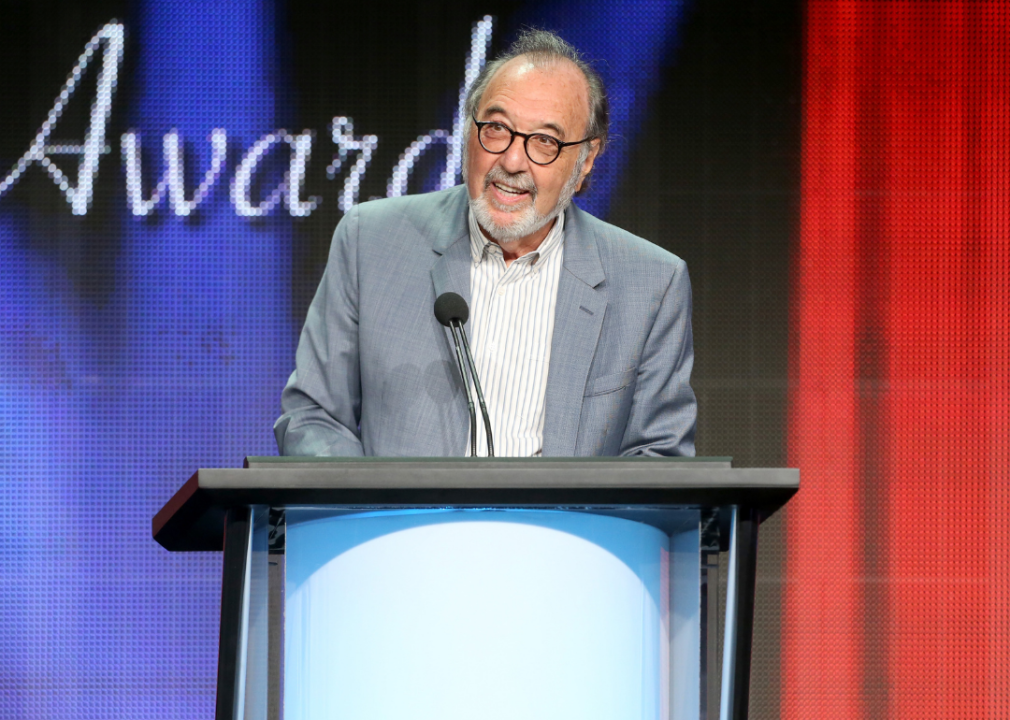
Frederick M. Brown // Getty Images
James L. Brooks
In the 1980s, James L. Brooks wrote, directed, and produced award-winning and acclaimed films such as “Terms of Endearment” and “Broadcast News.” After a slump with the Nick Nolte dramedy “I’ll Do Anything,” 1997’s “As Good as It Gets” brought critical success and best acting Academy Awards for both Helen Hunt and Jack Nicholson, respectively. Brooks is also known for producing TV shows such as “The Mary Tyler Moore Show” in the 1970s, and currently, the long-running animated series “The Simpsons.”
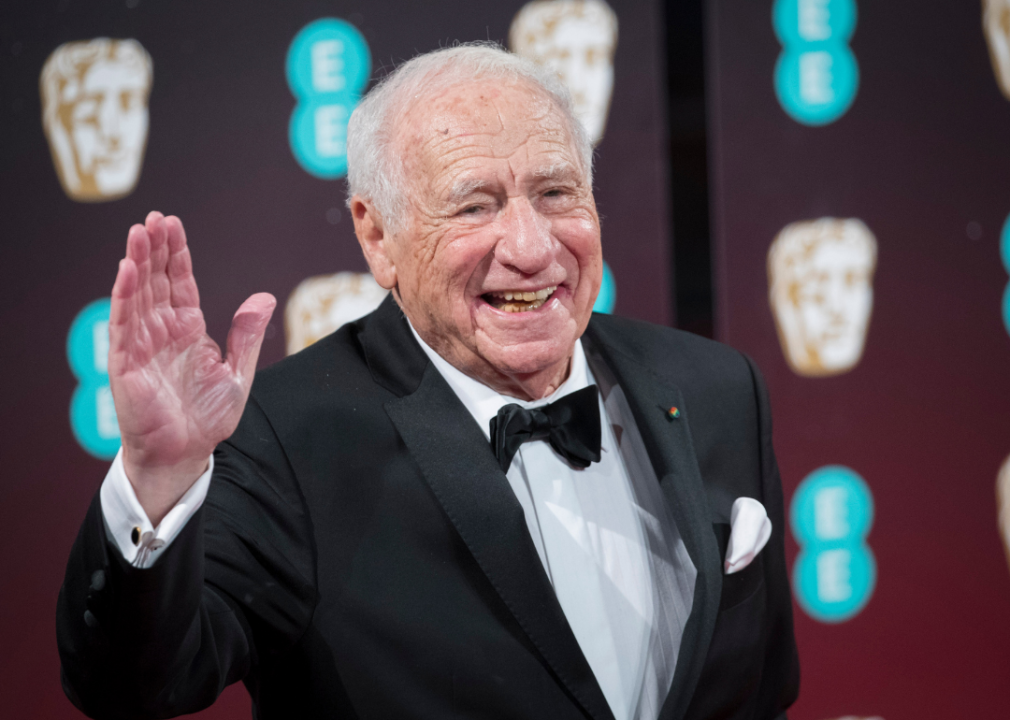
John Phillips // Getty Images
Mel Brooks
Mel Brooks is primarily known for writing and directing iconic slapstick comedies such as “Blazing Saddles” and “Young Frankenstein.” He also wrote, directed, and produced “High Anxiety,” “Spaceballs,” and 1993’s “Robin Hood: Men in Tights.” He has also produced several Broadway adaptations of his film work, including “The Producers,” starring Matthew Broderick, and “Young Frankenstein.” He is reportedly executive producing a TV series follow-up to his 1981 film, “History of the World: Part I,” titled—wait for it—“History of the World: Part II.”
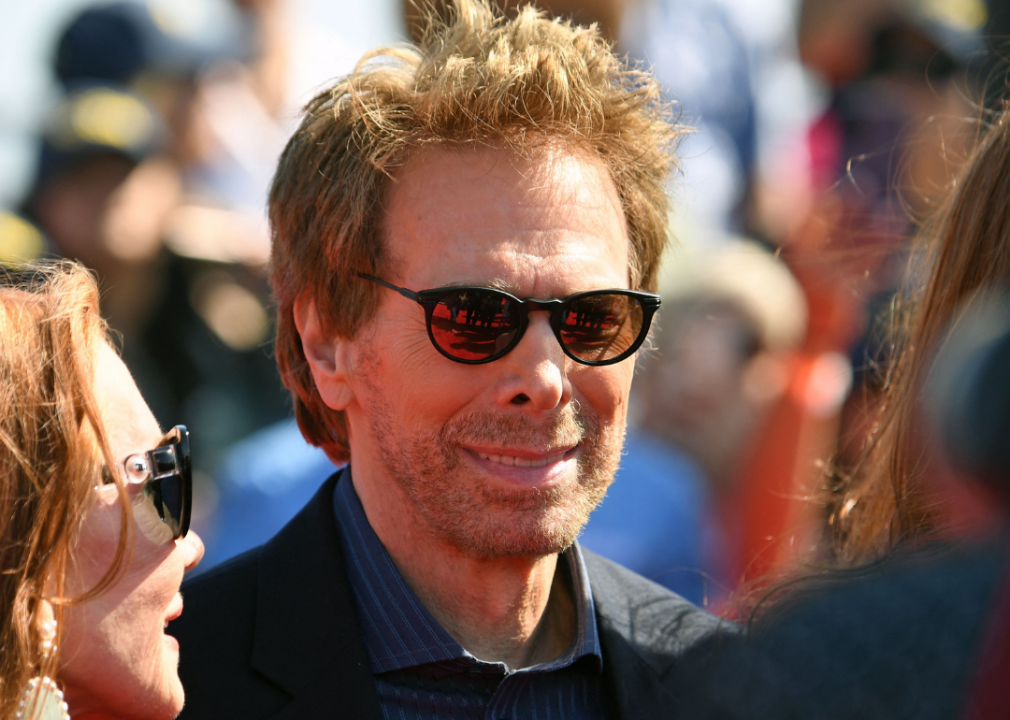
ROBYN BECK/AFP via Getty Images
Jerry Bruckheimer
Jerry Bruckheimer’s films were highly influential on the American film industry and its aesthetic style during the ’80s and ’90s. He produced iconic 1980s films with producing partner Don Simpson such as “Flashdance,” “Top Gun,” and the Beverly Hills Cop franchise. In the 1990s, Bruckheimer paired with director Michael Bay on “Bad Boys,” “The Rock,” and “Armageddon,” blockbusters with visually stunning action and violence. With more than 100 production credits to his name, Bruckheimer is presently involved in no less than 12 active projects as of May 2022, including sequels to the “Beverly Hills Cop” and “National Treasure,” as well as the Pirates of the Caribbean franchises.
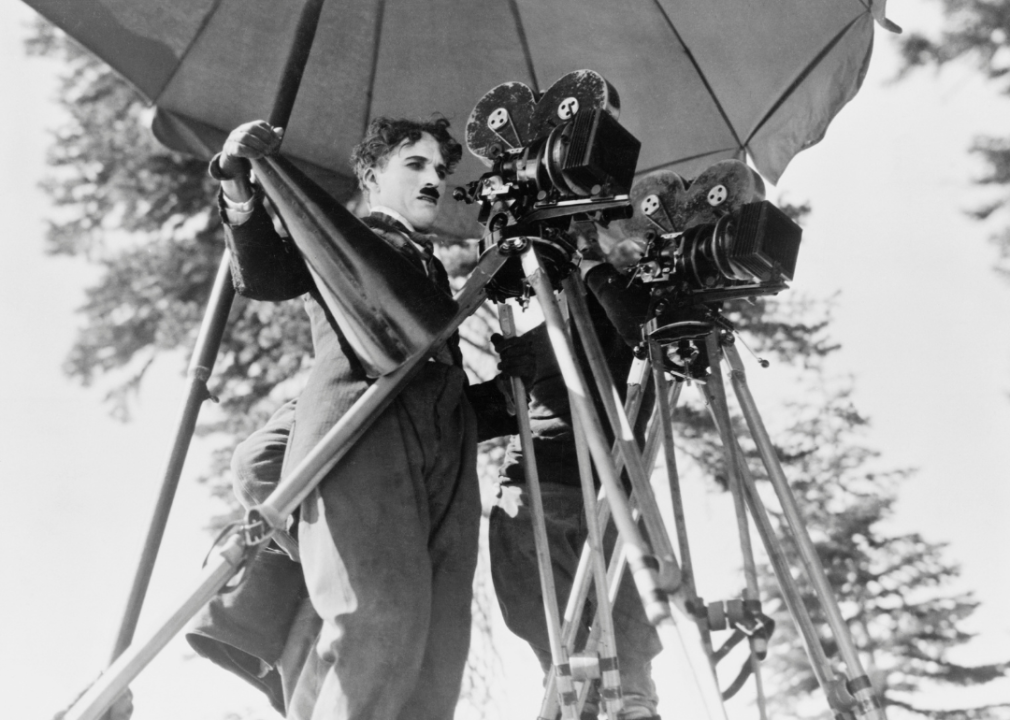
Bettmann / Getty Images
Charlie Chaplin
Charlie Chaplin’s film career was most prolific during the 1910s through the transition to sound in the early 1930s. He often wrote, directed, produced, and starred in silent films that fused adventure comedy with romance and pathos. Apart from portraying the Little Tramp character, he’s produced iconic silent films such as “The Circus” and “The Kid,” as well as a number of short films.
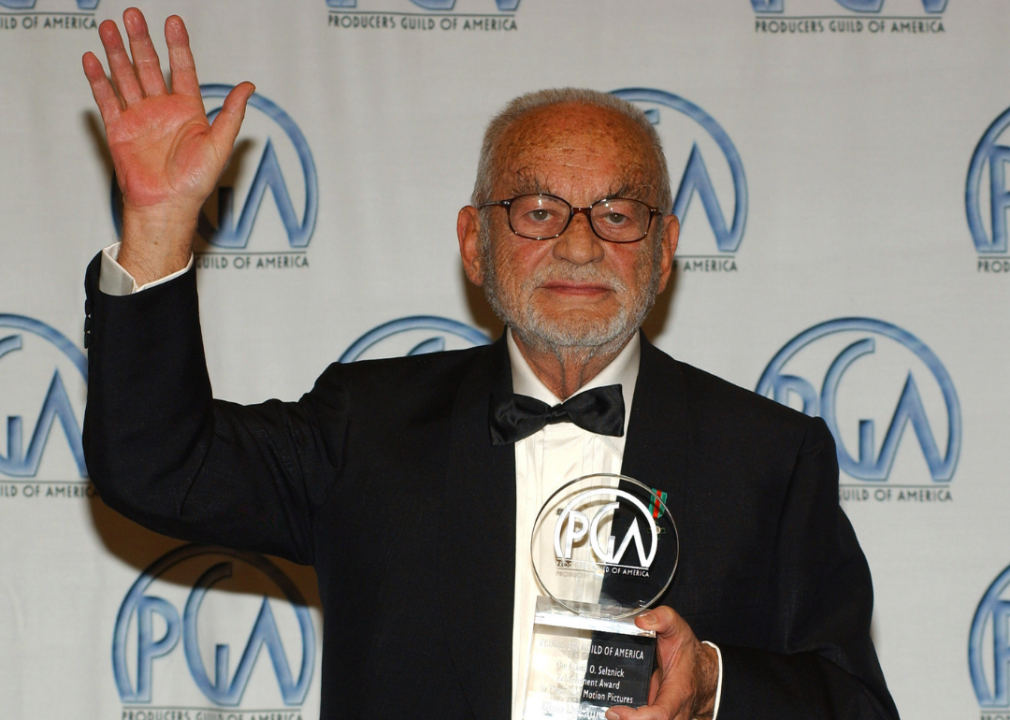
Jean-Paul Aussenard/WireImage // Getty Images
Dino De Laurentiis
Dino De Laurentiis produced several films during the Italian neorealist movement in the postwar period before relocating to the U.S. where he founded a studio and began producing popular and cult hits. De Laurentiis produced the science fiction romp “Barbarella” in 1968 and in the 1970s found success with “Death Wish,” several creature features including “Orca,” and the 1976 remake of “King Kong.” He was known for popular horror and action films such as the Stephen King novel adaptations “The Dead Zone” and “Cat’s Eye” and Hannibal Lector films “Hannibal” and “Red Dragon.” He died in 2010 with 186 producing credits to his name.
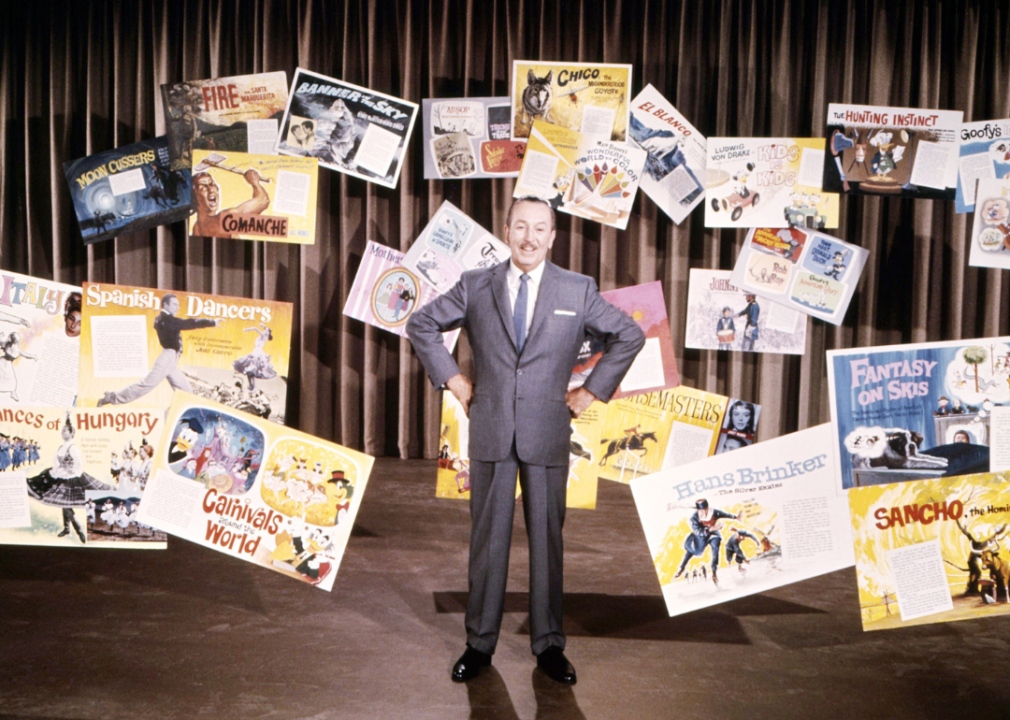
Silver Screen Collection // Getty Images
Walt Disney
Walt Disney has hundreds of production credits and is primarily known for animated films and for founding Walt Disney Studios with his brothers in the 1920s. Disney conceptualized the Mickey Mouse character in 1928 and went on to spearhead feature-length animated films in addition to cartoon shorts throughout his career. 1937’s “Snow White and the Seven Dwarfs” is regarded as a forerunner in the genre, and 1964’s “Mary Poppins” is a popular example of live-action with special effects animation, which Disney specialized in. Between full-length films and animated shorts, he was the producer on almost 700 projects—nearly all of them uncredited during his lifetime.
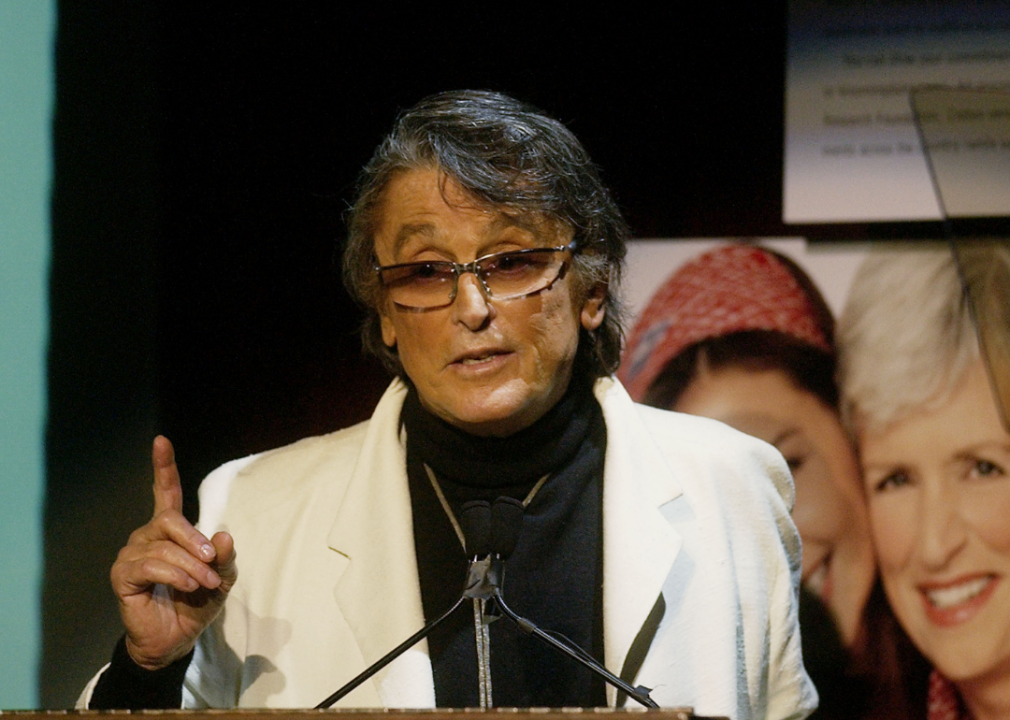
Ray Mickshaw/WireImage // Getty Images
Robert Evans
Robert Evans was a studio head at Paramount before hands-on producing 1974’s acclaimed neo-noir “Chinatown” vaulted him to the very top echelon of film producers. He went on to produce the thriller “Marathon Man,” starring Dustin Hoffman, and in 1980 caught the zeitgeist with James Bridges’ John Travolta starrer “Urban Cowboy.” In 1990, Evans went back to the well to produce the “Chinatown” sequel “The Two Jakes,” which, though directed by star Jack Nicholson, did not live up to the success of the first film.
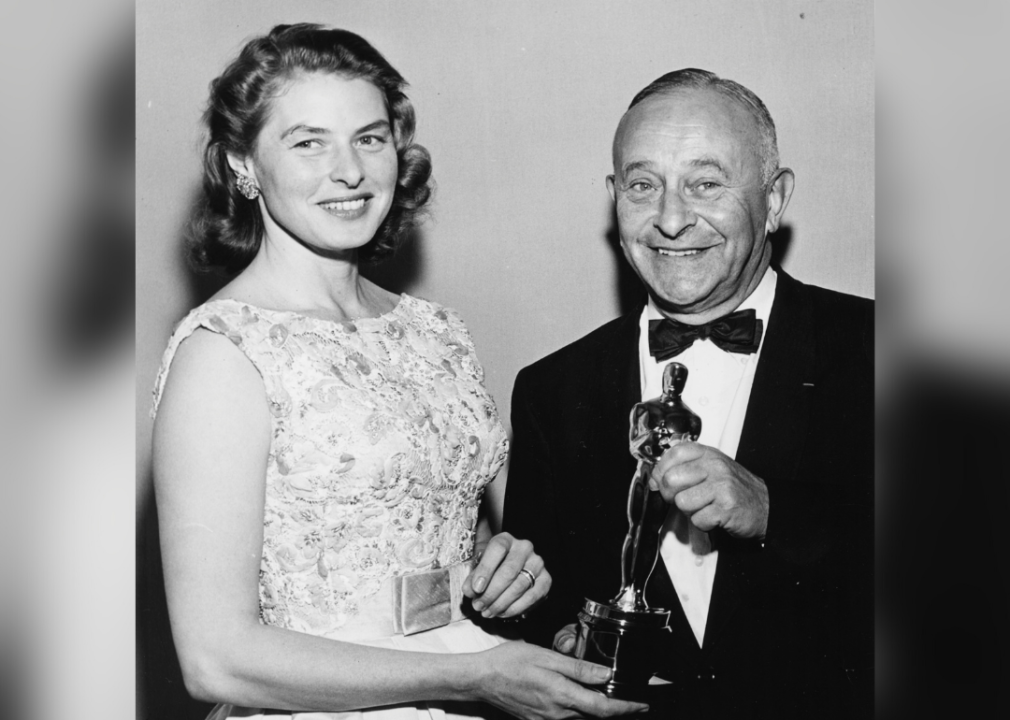
Archive Photos // Getty Images
Arthur Freed
Arthur Freed is best known for producing notable musicals throughout the 1940s and ’50s, including the iconic Gene Kelly vehicles “Singin’ in the Rain” and “An American in Paris.” He also produced popular backstage musicals centered around putting on a show such as “Babes in Arms” and “Babes on Broadway,” both starring Judy Garland and Mickey Rooney and directed by Busby Berkeley. Toward the end of his career, he also produced several Academy Awards ceremonies.
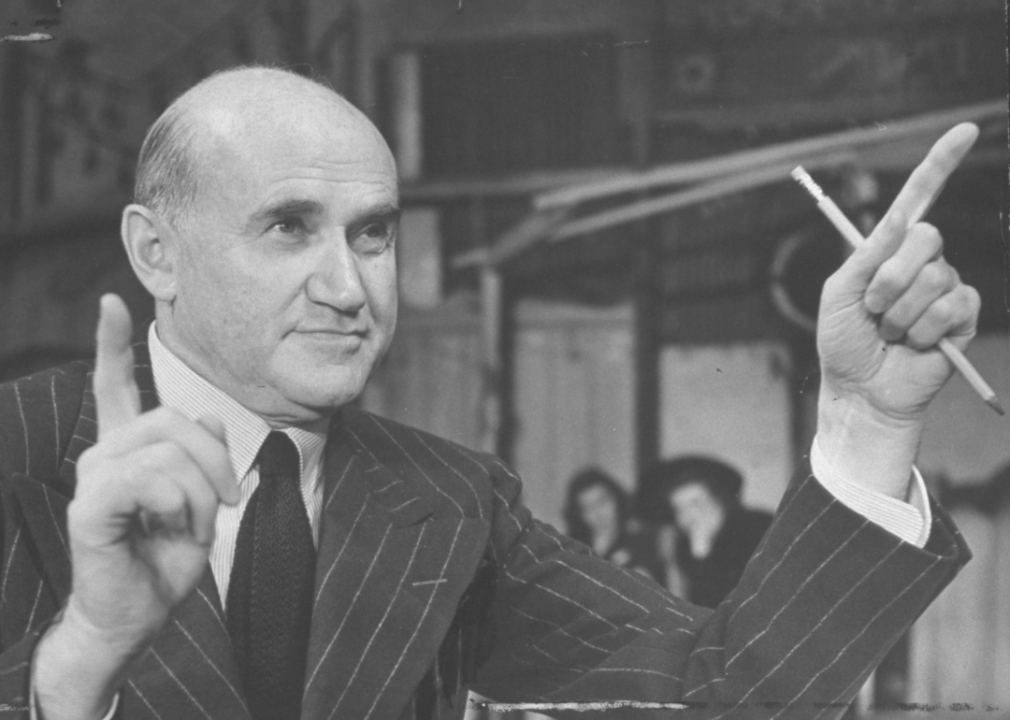
George Karger // Getty Images
Samuel Goldwyn
Working through the early silent period through the golden age of Hollywood and into the mid-1950s, Samuel Goldwyn produced over 100 films, many of them highly acclaimed dramas. Goldwyn’s production company took the Best Picture Oscar for 1946’s “The Best Years of Our Lives,” known for its gritty realism and powerful acting. He was also responsible for the Cary Grant vehicle “The Bishop’s Wife” and the Marlon Brando and Frank Sinatra musical “Guys and Dolls.”
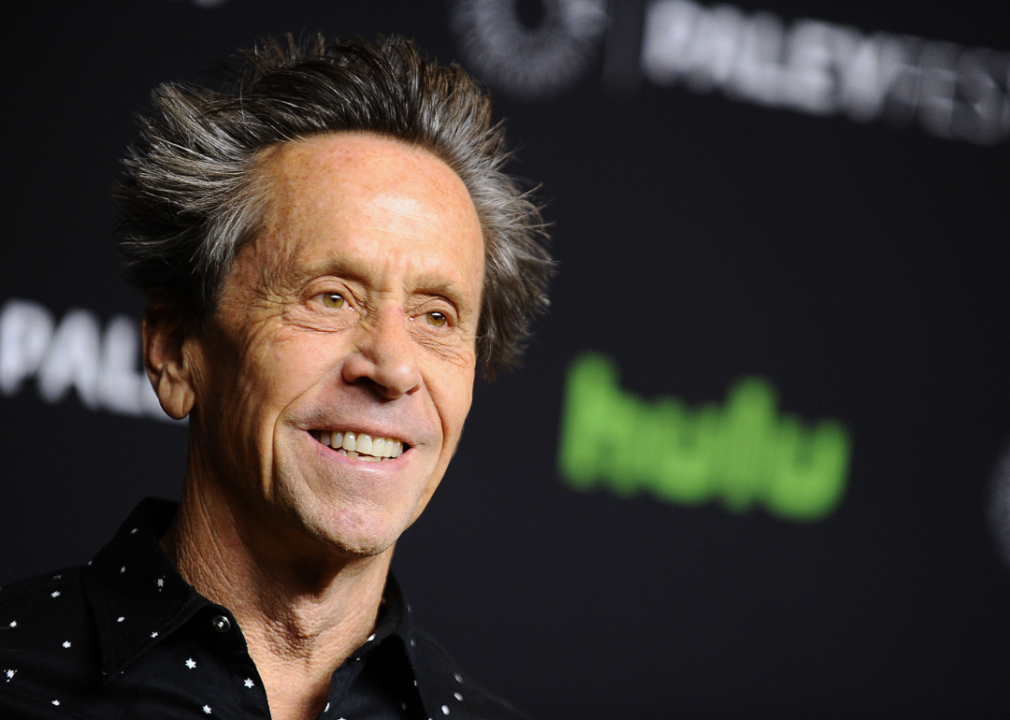
Jason LaVeris/FilmMagic // Getty Images
Brian Grazer
Brian Grazer most recently produced 2021’s Oscar-nominated “Tick, Tick… Boom!” but got his start back in the 1980s, often partnering with director Ron Howard on films like “Splash” and “Parenthood.” The duo’s relationship carried over into the 1990s with hits such as “Backdraft,” “The Paper,” and “Apollo 13.” In the late 1990s, he produced “Liar Liar” starring Jim Carrey, as well as director Gus Van Sant’s shot-for-shot color remake of “Psycho.” He won the Best Picture Oscar in 2002 for producing Howard’s “A Beautiful Mind.”
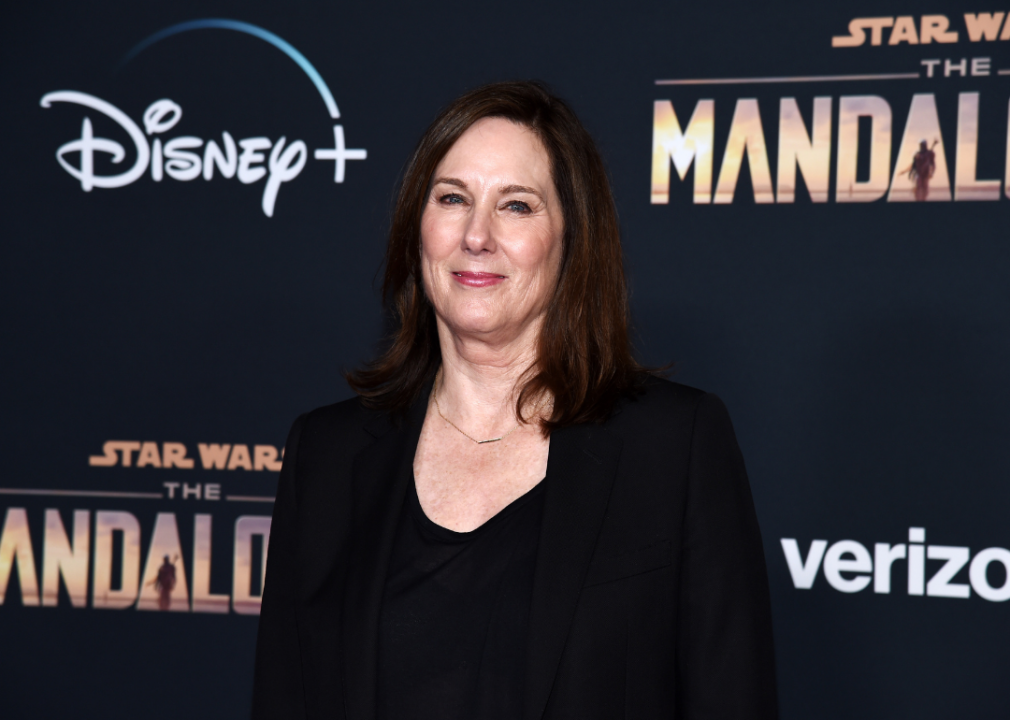
Amanda Edwards/WireImage // Getty Images
Kathleen Kennedy
Kathleen Kennedy began her career on 1982’s mega-hit “E.T. the Extra-Terrestrial” and went on to produce some of the most iconic films of the 1980s and 1990s, including “The Goonies” and the Back to the Future series. She often works with director Steven Spielberg, having produced a number of his films including “The Color Purple,” “Empire of the Sun,” “Jurassic Park,” “War Horse,” and “Schindler’s List,” among others. She is currently head of Lucasfilm and serves as either producer or executive producer on all Lucasfilm content, including the Star Wars universe and the upcoming fifth Indiana Jones film.
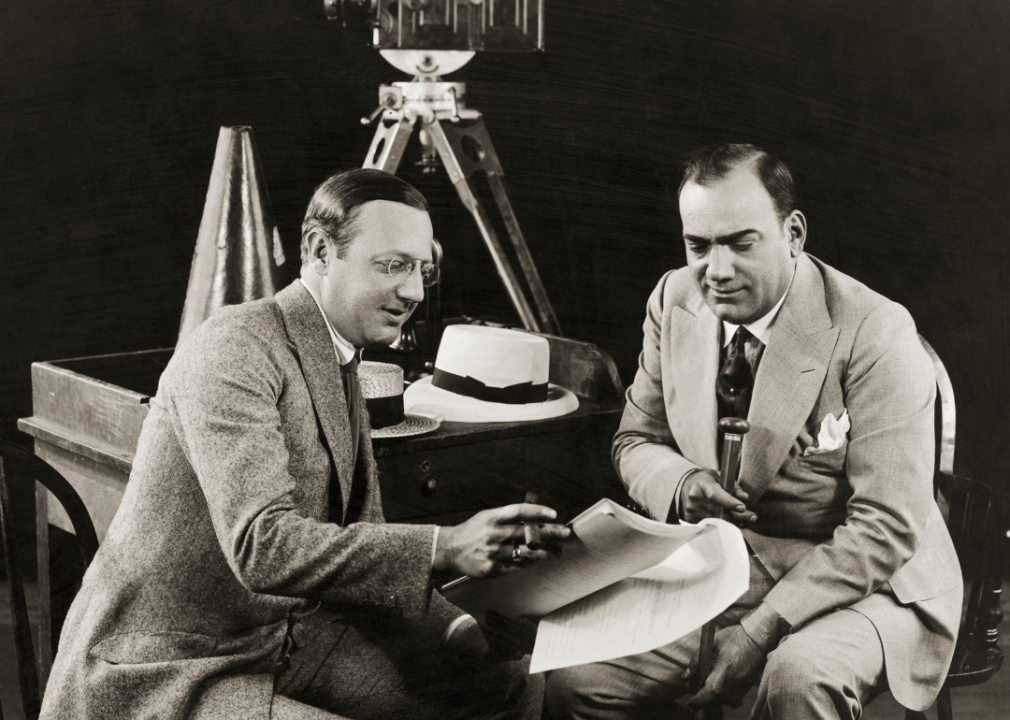
Bettmann / Getty Images
Jesse L. Lasky
Jesse L. Lasky is one of the most prolific producers of the silent era, producing several films per year, and spearheading the industry’s move to feature-length films. His productions popularized early cinema’s action plots centered on a love story with a melodramatic style. Lasky was part of the production team to win the Best Picture Oscar at the inaugural Academy Awards ceremony in 1929 for the movie “Wings,” an epic war romance featuring aircraft action.
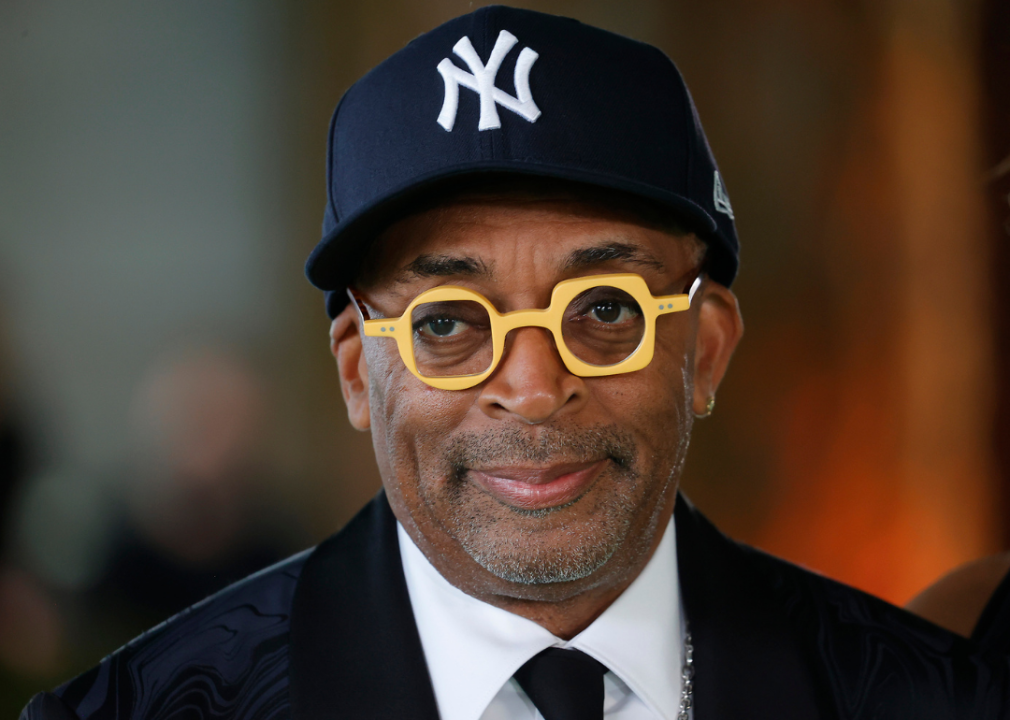
Frazer Harrison // Getty Images
Spike Lee
Spike Lee’s first independent films in the 1980s—“She’s Gotta Have It” and “School Daze”—launched the director-producer as a major stylist. Lee writes, directs, acts in, and also produces his films, including the acclaimed “Do the Right Thing,” starring Samuel L. Jackson, Rosie Perez, and John Turturro. In the 1990s, Lee produced his own films such as “Jungle Fever” and “Malcolm X,” among others, as well as writer-director Gina Prince-Bythewood’s “Love & Basketball.” Lee is also known for documentaries including “4 Little Girls” and “When the Levees Broke.” Lee won the Oscar for Best Adapted Screenplay for his 2018 film “Blackkklansman.”
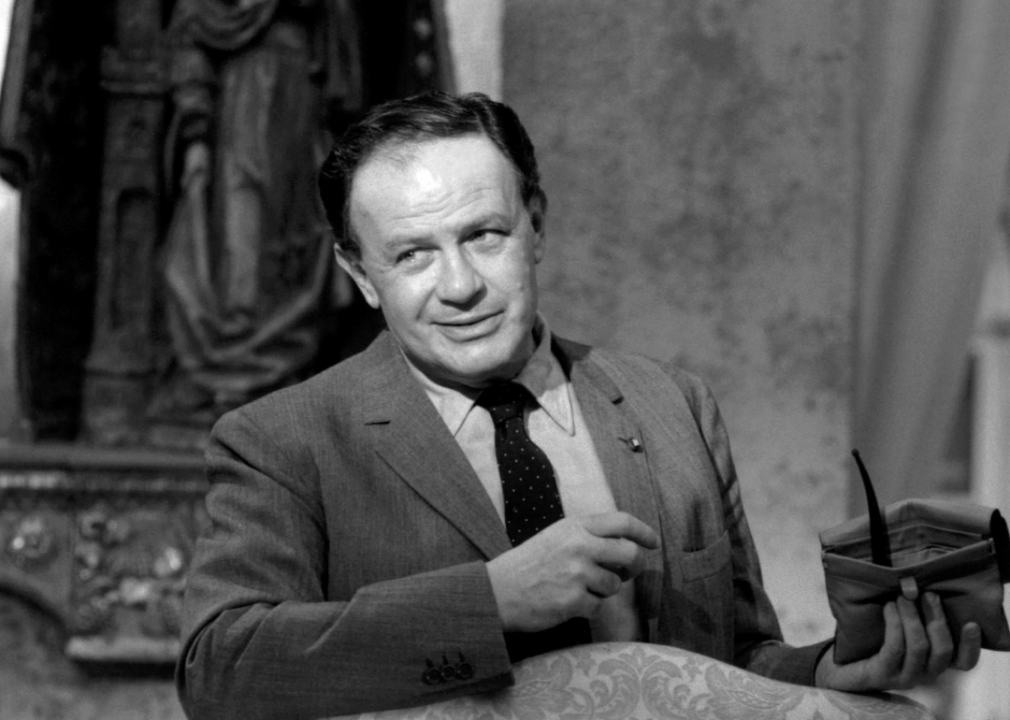
Martin Mills // Getty Images
Joseph L. Mankiewicz
Known primarily as a writer and director for such films as “All About Eve” and “Cleopatra,” Joseph L. Mankiewicz was also a producer for several major studios throughout his career. One of his most iconic productions was 1940’s “The Philadelphia Story,” an adaptation of the stage play of the same name that became an influential romantic comedy centered on an independent, witty woman played by Katharine Hepburn and the men (Cary Grant and Jimmy Stewart) who alternately desire and detest her.
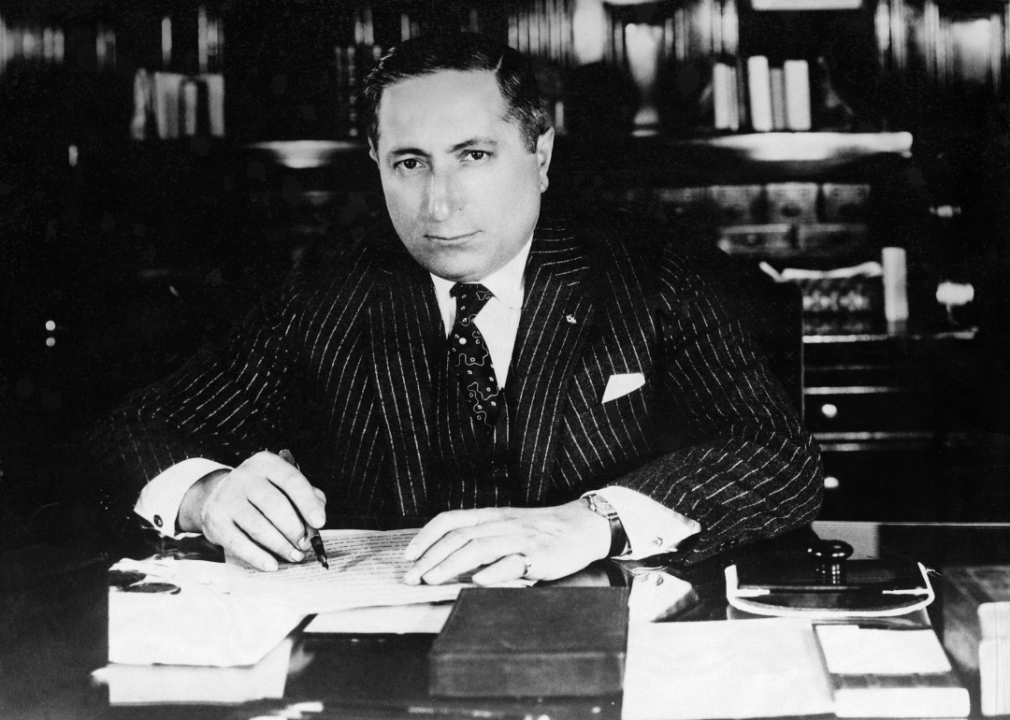
Hulton-Deutsch Collection/CORBIS // Corbis via Getty Images
Louis B. Mayer
Louis B. Mayer was a theater owner and distributor, notably of the racist 1915 film “The Birth of a Nation,” before moving into film production and co-founding MGM Studios in 1924. Mayer was the studio head, overseeing and approving all MGM productions and streamlining studio labor such as keeping actors under contract. “Gone with the Wind” and “The Wizard of Oz” were banner MGM productions under Mayer’s tenure. During his reign in Hollywood, Mayer became known for taking production to new levels in scale and special effects.
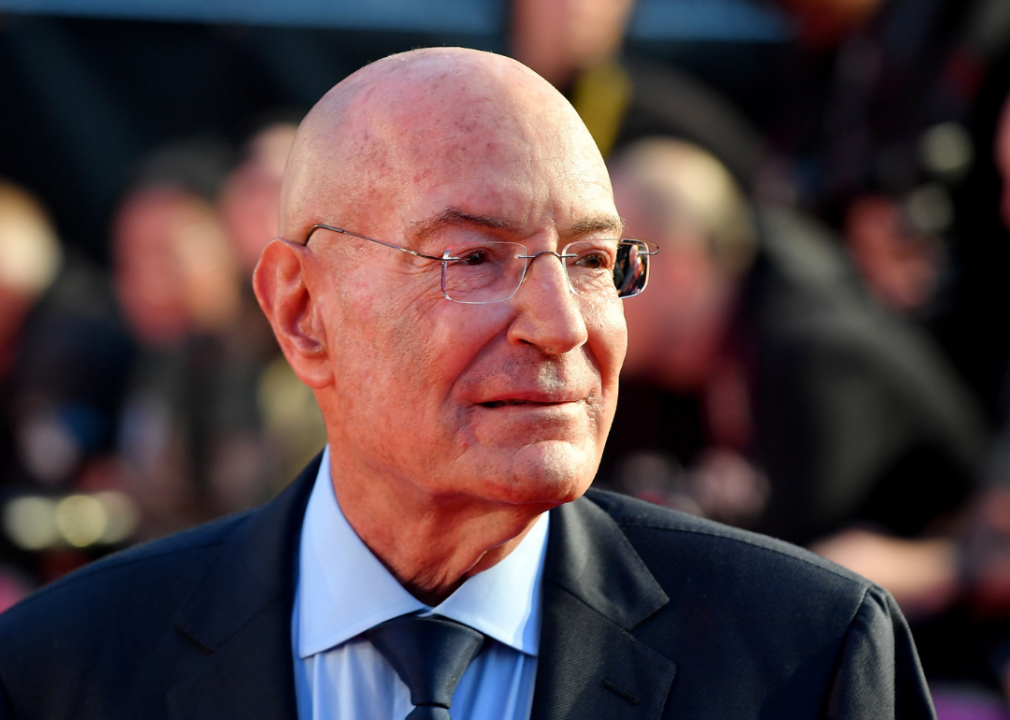
Gareth Cattermole // Getty Images for BFI
Arnon Milchan
Arnon Milchan’s credits include some of the most culturally iconic films of the last 40 years, including 1990’s “Pretty Woman,” the Oscar-nominated “L.A. Confidential,” and David Fincher’s “Fight Club.” Milchan seemingly had his hand in nearly every mid-budget movie since the early ’90s, and in this century produced such films as the Brad Pitt-Angelina Jolie action vehicle “Mr. and Mrs. Smith,” Wes Anderson’s stop-motion animation “Fantastic Mr. Fox,” and another Fincher classic, 2014’s “Gone Girl.” Milchan was the executive producer on consecutive Best Picture Oscar winners including “12 Years a Slave” and “Birdman or (The Unexpected Virtue of Ignorance).”
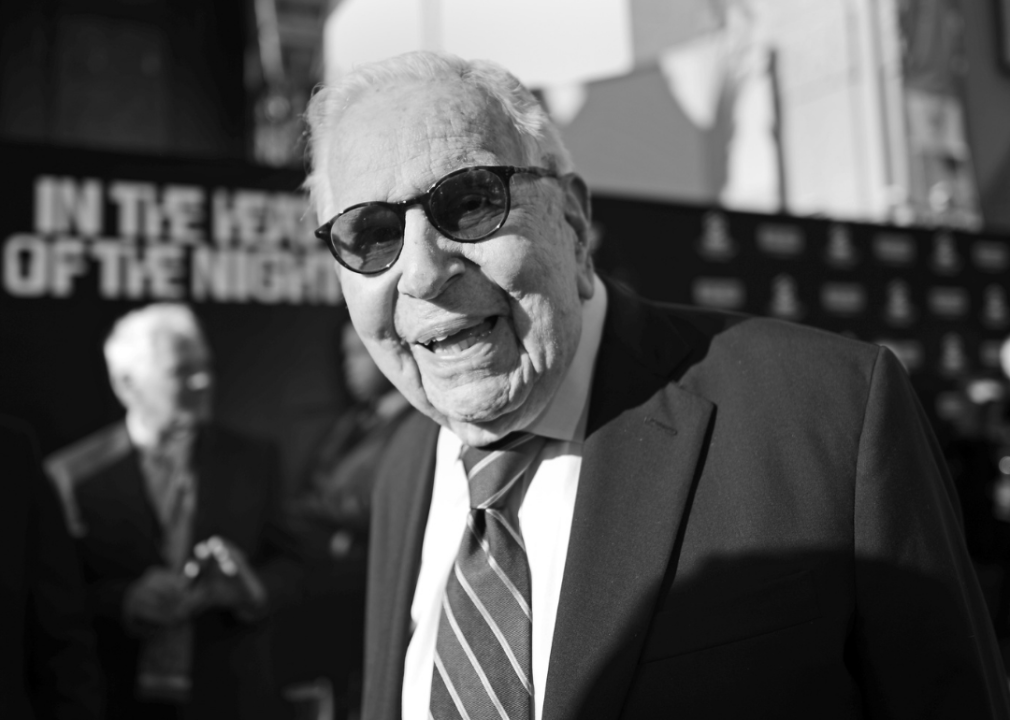
Charley Gallay // Getty Images for TCM
Walter Mirisch
With nearly 100 production credits starting in the late 1940s, Walter Mirisch oversaw the iconic 1960 Western “The Magnificent Seven” and received an executive producer credit on the 2016 remake. He produced popular Hollywood films in every genre, including a slew of adventure films in the early 1950s like “The Lost Volcano” and “The Lion Hunters.” He won an Oscar for Best Picture for “In the Heat of the Night,” and produced the two sequels also starring Sidney Poitier.
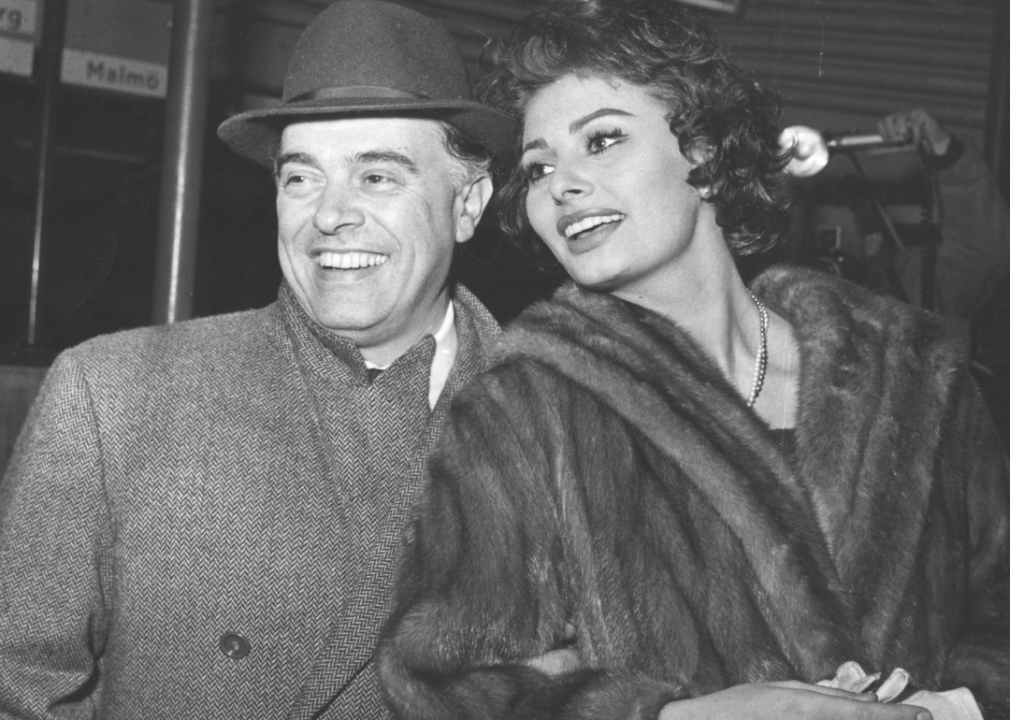
Keystone // Getty Images
Carlo Ponti
The Italian producer Carlo Ponti met actress Sophia Loren when she was just 15, launching her career as a movie star in such films as “Two Women” and “Marriage Italian Style.” Ponti produced over 150 films from the 1940s through the 1970s, including the work of Italian art directors like Michelangelo Antonioni (“Blow-Up”), and British auteur David Lean with the historical romance and Oscar-winning box office hit “Doctor Zhivago.”
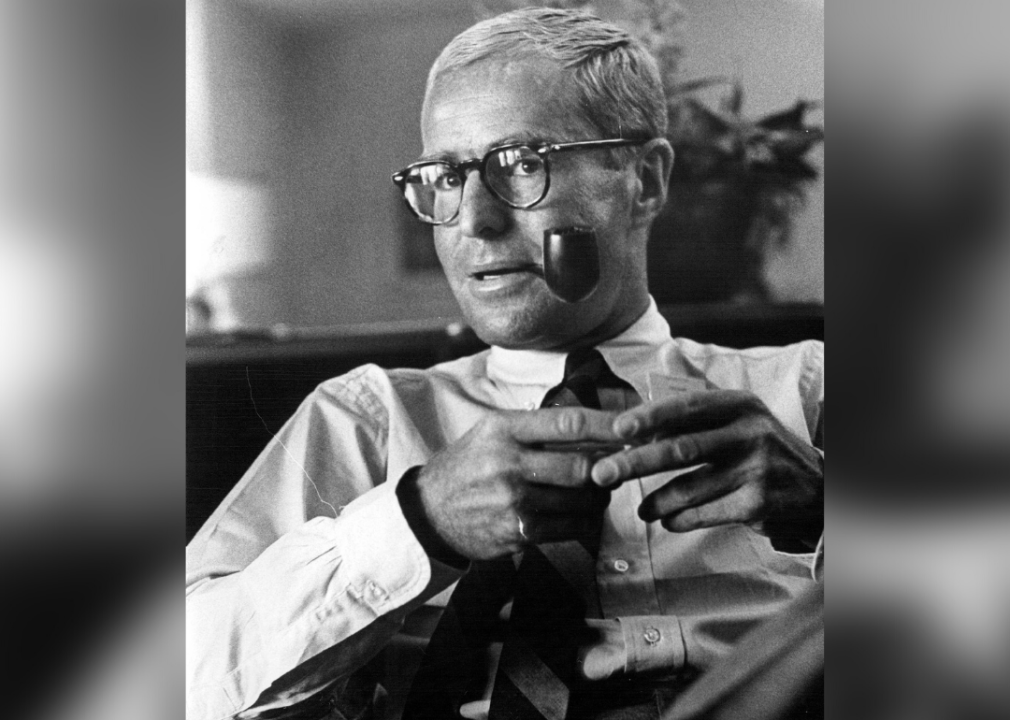
Denver Post via Getty Images
Robert B. Radnitz
Robert B. Radnitz is known for producing sensitive adaptations of children’s literature including 1972’s “Sounder,” one of the first family films to center on a Black family. His productions featured a naturalist style and thematic storytelling that were popular with audiences. He also produced 1964’s “Island of the Blue Dolphins,” an adventure story focusing on an Indigenous girl alone on an island. Radnitz died in 2010.
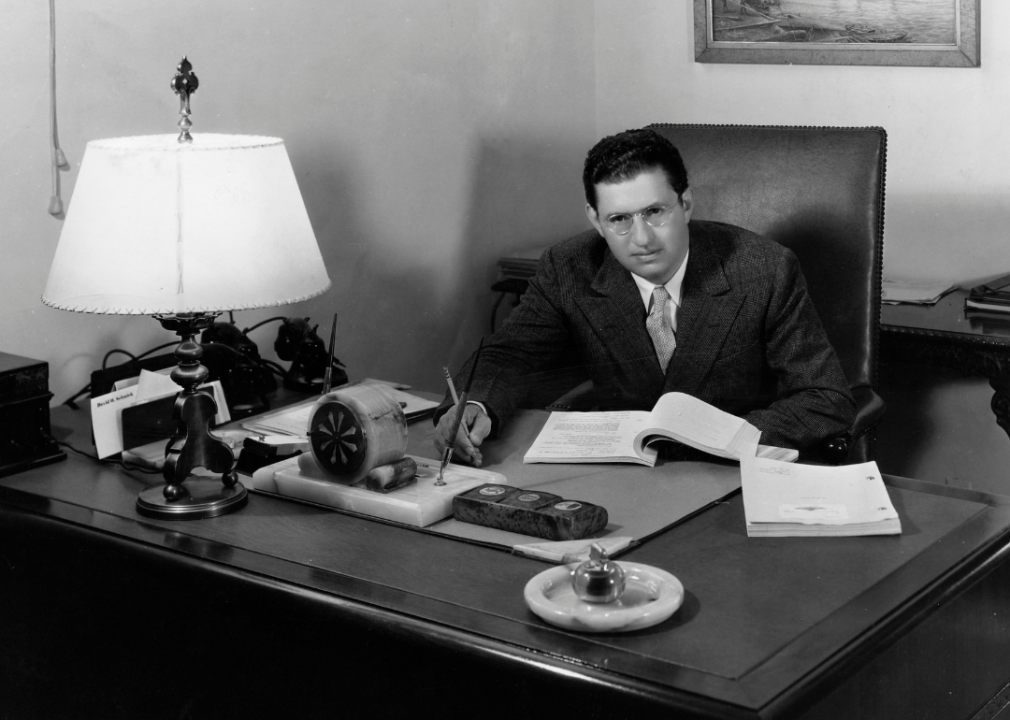
John Springer Collection/CORBIS // Corbis via Getty Images
David O. Selznick
David O. Selznick was involved in all aspects of production throughout his storied career, increasingly turning to epics and special effects spectacles like “King Kong” in 1933. He was responsible for adapting Margaret Mitchell’s bestselling novel “Gone with the Wind” for the screen, and later in his career worked with Alfred Hitchcock, with whom he collaborated on 1940’s “Rebecca” and “Spellbound” in 1945.
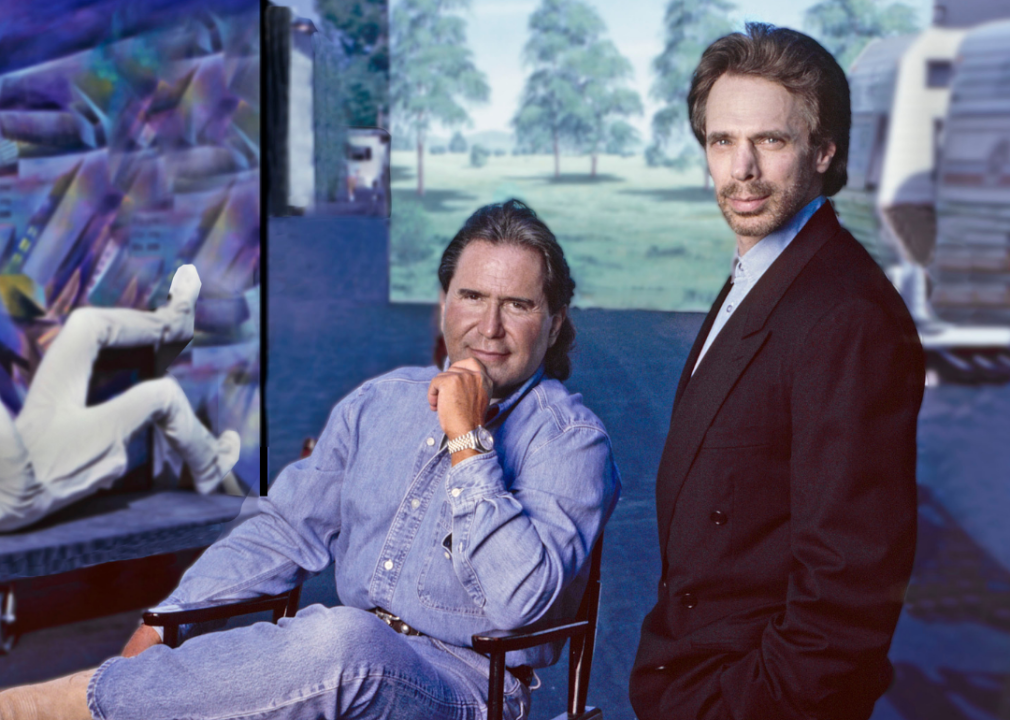
Aaron Rapoport/Corbis // Getty Images
Don Simpson
Don Simpson’s partnership with Jerry Bruckheimer produced some of the most high-octane action blockbusters of the 1980s and 1990s, including Tom Cruise vehicles “Top Gun” and “Days of Thunder,” the first two Beverly Hills Cop films, and director Tony Scott’s submarine thriller “Crimson Tide.” Simpson and Bruckheimer’s films have a distinctive style that favors flashy action alongside hit soundtracks. Just before his untimely death in 1996, Simpson oversaw the production of Michael Bay’s smash hit “The Rock.”
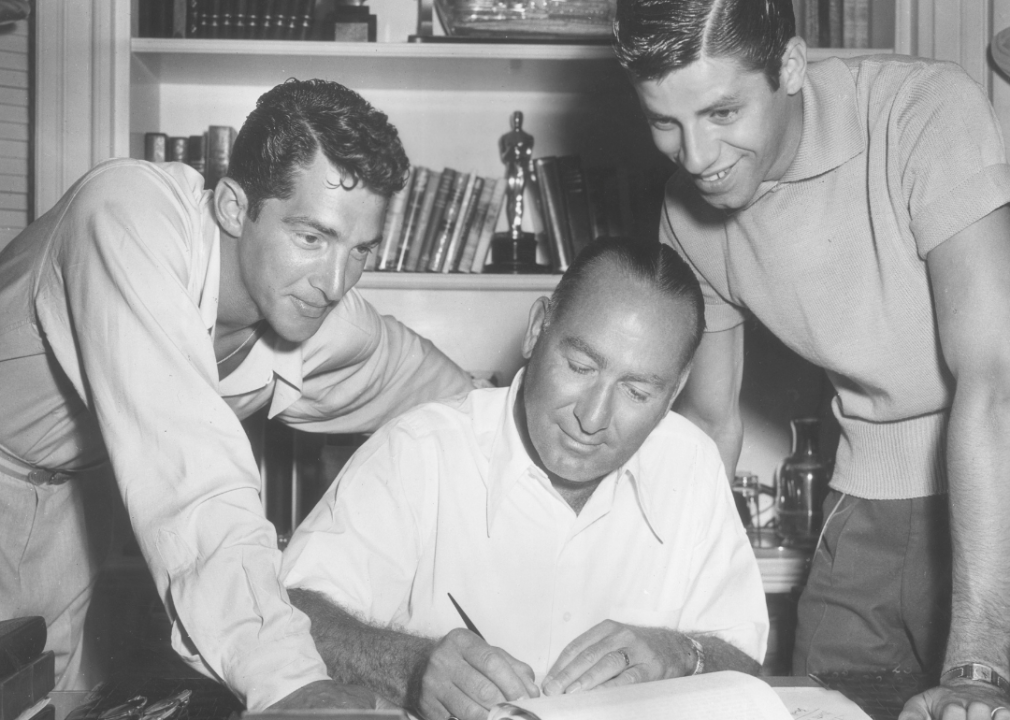
Hulton Archive // Getty Images
Hal B. Wallis
Hal B. Wallis has producer credits as varied as 1940s Humphrey Bogart classics “The Maltese Falcon” and “Casablanca” and numerous Elvis Presley films, starting with “Loving You” in 1957 and continuing with hits “King Creole” and “Blue Hawaii.” Wallis also produced several Westerns, notably “True Grit,” which earned John Wayne his only Best Actor Oscar, as well as a number of Jerry Lewis comedies, and the drama “Barefoot in the Park” starring actor Robert Redford in one of his first major roles.
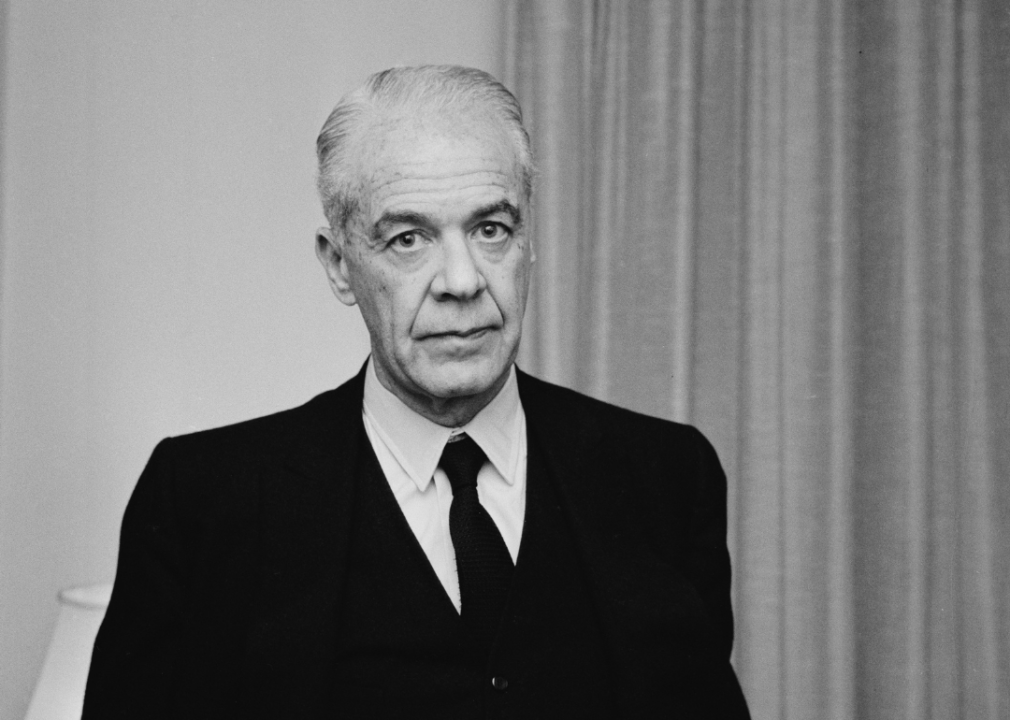
Harry Benson/Daily Express // Getty Images
Walter Wanger
Known for producing expensive epics that were also box office flops such as 1948’s “Joan of Arc” and 1963’s “Cleopatra,” Walter Wanger produced for major studios as well as his own independent film company. Despite those aforementioned bits of bad box office luck, Wanger’s innovative vision brought several lasting classics to the screen between the 1930s and 1950s including “Stagecoach” and “Invasion of the Body Snatchers.”
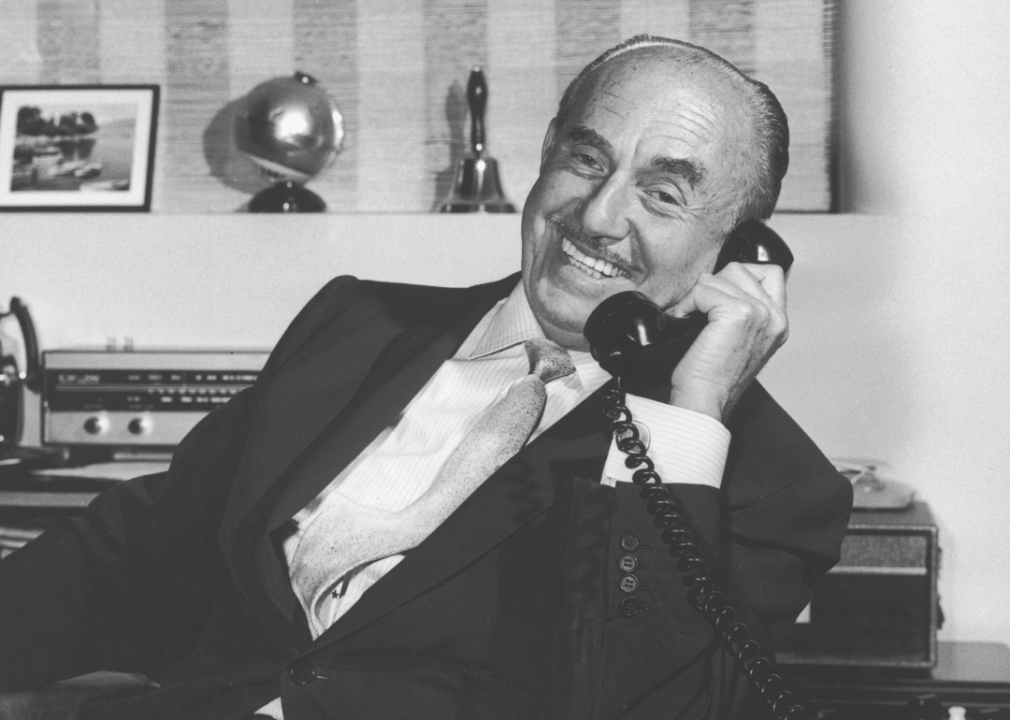
Hulton Archive // Getty Images
Jack L. Warner
One of the four siblings who founded Warner Brothers Studios, Jack L. Warner took the hands-on role of executive producer, shepherding films through development to completion, including classics such as “Casablanca” and the noir melodramas “The Big Sleep” and “Mildred Pierce.” He went uncredited (but bore a significant influence) on the 1954 Judy Garland comeback hit “A Star Is Born.” After scores of dramas and gangster films during the classic period, two of the final films of Warner’s career were the 1960s musicals “My Fair Lady” and “Camelot.”
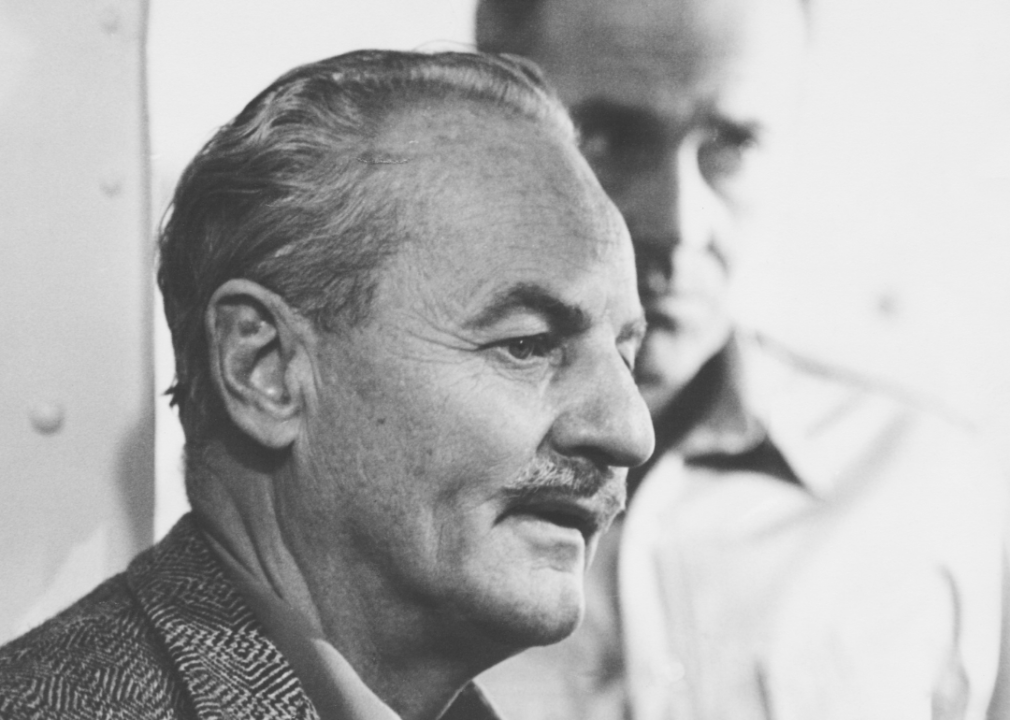
Pictorial Parade // Hulton Archive/Getty Images
Darryl F. Zanuck
Darryl F. Zanuck led a storied career as a writer and producer, often uncredited, while heading 20th Century Films (in the pre-Fox days) during the heyday of the golden Hollywood era. Zanuck started his career during the silent era, and influenced early genres such as the gangster film and the musical, overseeing classics “The Public Enemy” and “42nd Street.” Known for churning out popular films with noteworthy stars, he won Best Picture Oscars for “All About Eve” and “The Longest Day.”
This story originally appeared on Giggster
and was produced and distributed in partnership with Stacker Studio.


